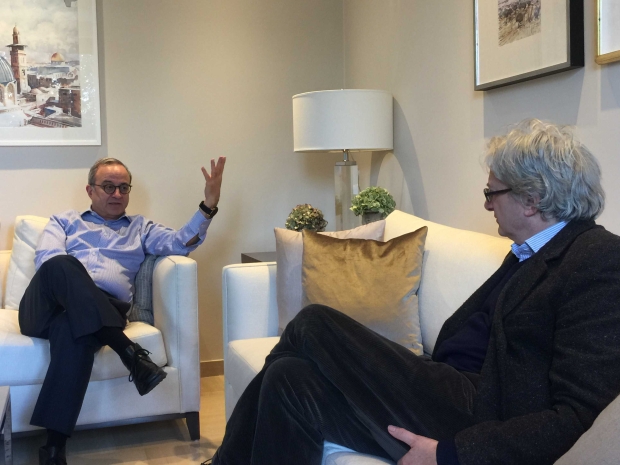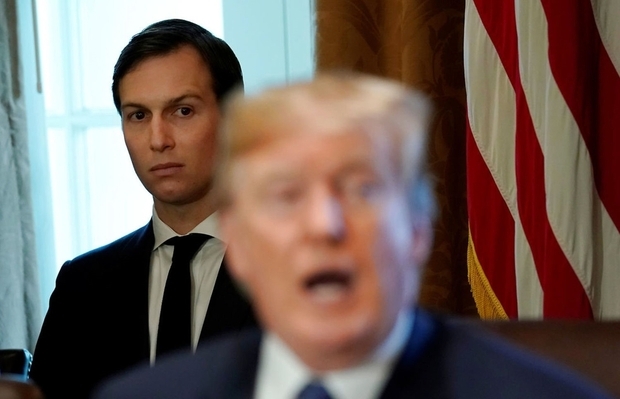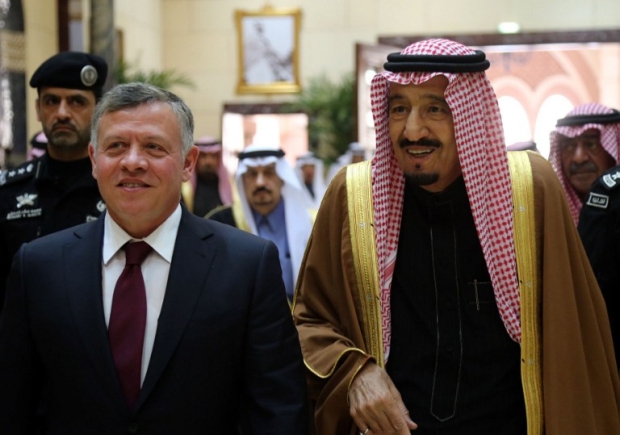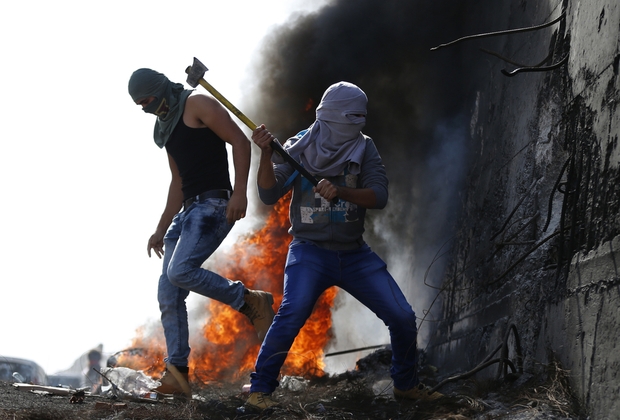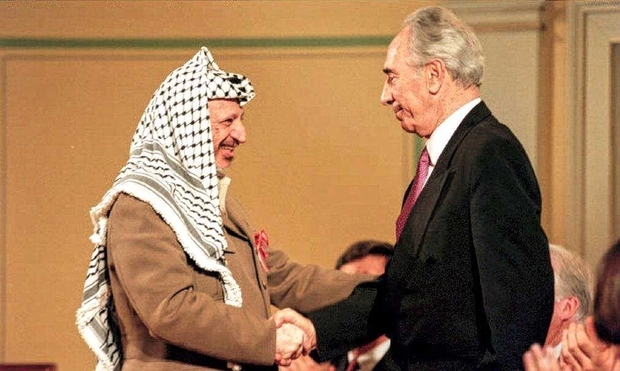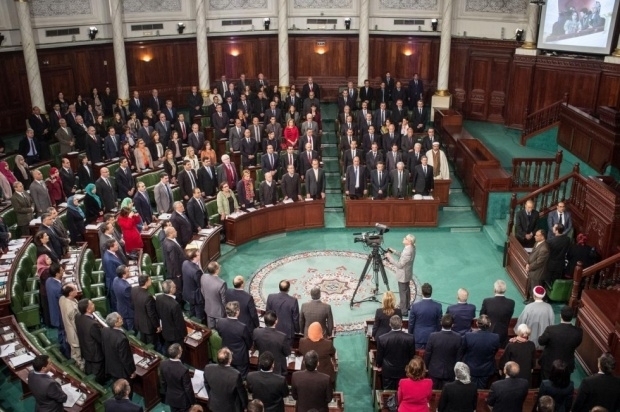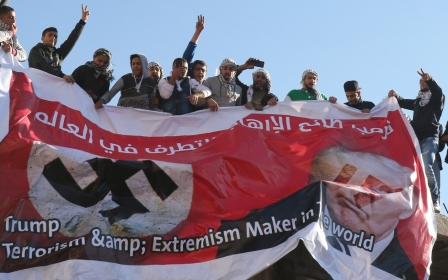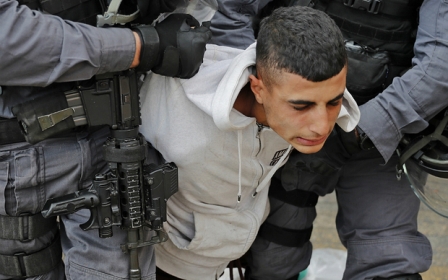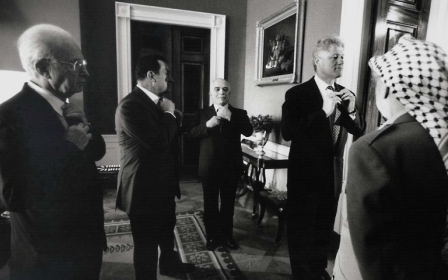Interview: Marwan Muasher, peace architect and Jordanian diplomat
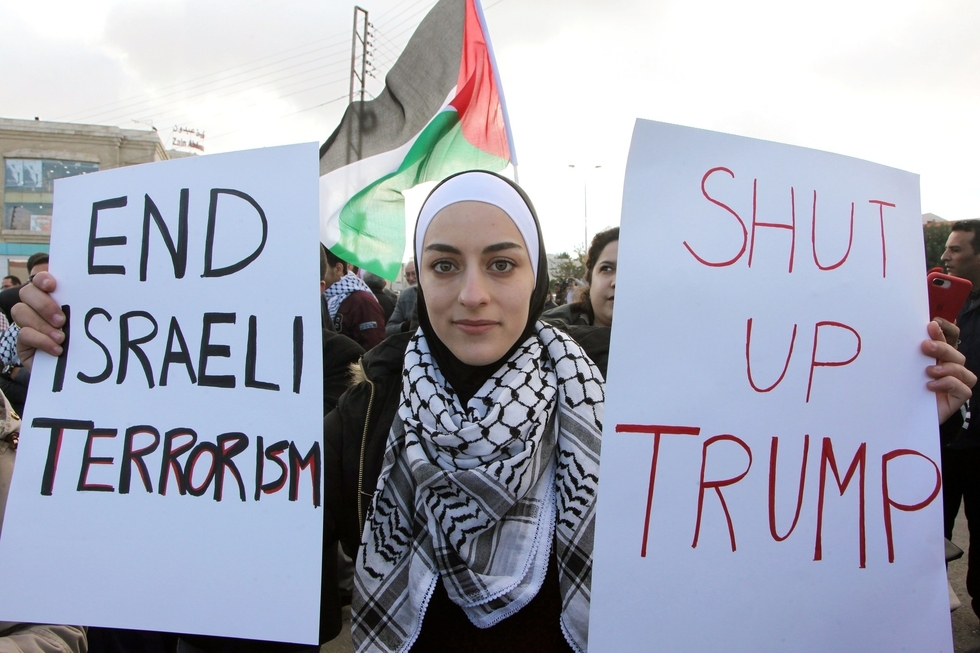
MEE: You were the first Jordanian ambassador to Israel in 1996. What lessons do you derive from your experience of negotiating with Israel?
Marwan Muasher: This was a totally different time. There was some hope that there would be an end to the Occupation and the establishment of a Palestinian state. The Israeli government at the time was at least willing to engage. In retrospect it was not clear whether they ever wanted a Palestinian state. Certainly [Yitzak] Rabin never said that explicitly. But there was hope that the Oslo process would at least lead to an end of the occupation.
Today, the number of settlers is 650,000 in the West Bank and East Jerusalem. Even if the political will exists, and I do not think it does, there is no way to implement a two-state solution.
There are 250,000 settlers in East Jerusalem alone. So in my view, the two-state solution is dead. Some people will say it never lived, but it is certainly dead today.
MEE: Do you feel betrayed?
MM: It’s not personal. I think the Arabs did their best to find a political solution and it did not stop at the Oslo process. We came up with lots of initiatives including the Arab Peace Initiative in 2002, which attempted to find a regional solution that would make an Israeli agreement possible.
READ:
‘It’s dead’: Peace architect gives up hope for Israel-Palestine two-state solution
But of course the Israelis did not play along, neither did the Americans. The [George W] Bush administration paid lip-service to the peace process. So we did our best, but it is time to acknowledge that the old paradigm is over. No amount of negotiations today are going to reach a two-state solution, because one of the parties does not want it, the Israeli party, and the sponsor of such talks is now totally biased towards the Israelis.
Under these conditions, you can no longer cling onto an old model.
MEE: What is the effect of Trump's move of the US embassy to Jerusalem?
MM: Legally, it’s worth nothing. Just because the US wants to acknowledge Jerusalem as the capital of Israel does not mean it becomes so under international law. All international resolutions are clear on this point. But of course, from a moral point of view, you have the biggest superpower in the world attempting to take Jerusalem off the negotiating table, frankly in an extremely naive manner. To suggest that you can take Jerusalem off the table and expect anyone from the Palestinian side to still negotiate an agreement is pure fantasy. It’s not going to happen. There is no Palestinian leader in the world today who can agree to such a settlement.
MEE: You bring a Jordanian Christian perspective to this.
MM: Jerusalem is important to every Muslim, every Arab and when I say Arab, I mean Christians as well as Muslims. The number of Christians in Jerusalem today is less than 4,000 people, which means we might face a situation in a generation's time when Christian holy places become museums where nobody lives and that's dangerous.
It’s dangerous also to the idea of diversity and co-existence in Palestine and the Arab world too. It’s not just Arab Christians who are worried about this. Muslims do not want the Christians to disappear from the city. The conditions are so difficult that Christians find it easier to emigrate. Also, their birthrate is lower. At the turn of the last century, Christians were more than 20 per cent of the city's population. Today they are less than one per cent.
MEE: What do you think of Trump's “deal of the century”?
MM: The Trump administration have this idea that they can take Jerusalem out, take the refugees out, without even a symbolic right of return and with the reduction of funds for UNWR, take the Jordan Valley out, take the settlements out, and you can negotiate the rest. It’s crazy. That is not a “deal of the century” to anybody but the Israelis. The deal has not been announced, but it has been leaked enough to make it extremely problematic. It shows a total lack of sensitivity and knowledge about what it takes to find a solution.
This generation is not interested in a two-state solution, not because it does not believe in a Palestinian state, but because it understands it cannot be realised. And it cannot. So if it cannot come to pass, they will focus instead on a rights-based approach, and if that takes them to a one-state solution, they don't care. They want their rights now.
MEE: The right of return has been taken off the table. What effect does that have on Jordan?
MM: Nobody expected millions of refugees to return but you cannot take the right of return out of the formula without a comprehensive solution. It’s part of the negotiations. Not only that, closure on this issue is very important. You have three generations of Palestinians who are refugees and they want Israel to acknowledge the injustice it caused them. They want compensation and some want to return.
The Arab Peace Initiative talked about an agreed solution to the refugee problem. Of course we did not want to give the impression that we are asking for five million Palestinians to go back. Most of the Palestinians in Jordan have citizenship and freedom to decide where they want to live and I doubt many of them would go back. They might have grievances but they are at least constitutionally full citizens. You also have a number of Gazans to whom the government does not want to give citizenship. But for either group, to take the right of return out of the equation is a non starter.
MEE: One of the new ingredients this time around is the personal relationship between Mohammed bin Salman and Trump's son-in-law Jared Kushner. Is Jordan's role as the Arab gatekeeper to Israel being bypassed by Saudi Arabia?
MM: Its not a question of roles being bypassed. There is a notion, probably promoted by the Israelis, and certainly repeated by the Americans, that says we do not need the Palestinians for a regional settlement. We can sign a deal with the Saudis, Egypt, whomever. We can decide on the future of the occupied territories without the Palestinians necessarily being partners. It’s ludicrous.
MEE: There have been leaks about replacing East Jerusalem as the capital of a future Palestinian state with Abu Dis.
MM: Pure fantasy. Nobody wants Abu Dis. People want the holy places. The rest is all gimmicks. They say: "Let's give them Abu Dis and they will forget about the holy places." You can forget about everything else except the holy places. There is no way the Saudis can say, even to their own people, that even if the Palestinians cannot accept such a deal, we think it should be accepted. It will not work with their own people let alone the Palestinians.
Remember that Arafat did not accept a deal in which he got all of East Jerusalem outside the [city] wall, most of it inside the wall itself except for the Jewish quarter and 12 Armenian houses because they overlooked the Wailing Wall, and sovereignty above the ground, but not below, and he could not accept a deal. So how can Abbas, who does not have Arafat's stature, say: "I am going to accept a deal that says the holy places and Jerusalem are completely out of the equation?" Not just all Jerusalem but also most of East Jerusalem outside the old city.
I think the deal is so bad, so unacceptable that if Abbas is pushed by anybody to accept it, the only way out that he has is to turn the keys back to the Occupation.
MEE: Do you think that is what he should do?
MM: If the deal amounts to this, absolutely. The demographics are clear. You have today, according to official Israeli statistics, 6.5m Israeli Jews, and 6.5m Palestinian Arabs in the areas that Israel controls. Every Palestinian woman gets four children today. Every Israeli woman, even with the high birth rate of the settlers, gets three. In one or two generations the Palestinians will become 60 or 70 per cent of the population. We have no example in history where the minority rules over the majority indefinitely in what is clearly an apartheid system if you are not going to give them equal rights.
The Occupation has been there for 50 years. Palestinians have not left. So the “deal of the century” is a “deal of the century” to the Israelis in the short term, but it might be a “deal of the century” to the Palestinians in the long term, because you are offering them such a bad solution that the only alternative they have is to call for a one-state solution.
MEE: Jordan's custodianship of the holy places was written into the Wadi Araba treaty with Israel, and one of the reasons for this was Hashemite history, with the loss of the other two Muslim holy places to the House of Saud and the fact that custodianship bestows legitimacy. Is this a factor in the importance of Jerusalem the Royal Household?
MM: Yes, it is. King Hussein felt responsible for losing Jerusalem. It was always a sour point for him and he wanted to do his best to bring it back. King Hussein went into the 1967 war knowing that he was going to lose but conditions at the time could not have left him out. But he was always bitter about this.
It is also part of the legitimacy of the Hashemites. Legitimacy is very important in the Arab world. It has allowed us to withstand all the turmoil of the Arab spring, because the monarchy in Jordan is not threatened in the way that the systems in Egypt and Tunisia were. People want reform within the system rather than outside it. Jerusalem plays a big part in this.
MEE: A new generation of autocrat has taken over control in the Arab world that makes a Mubarak or a Ben Ali seems moderate in comparison. What do you see as the future of Arab leadership?
MM: I was a principal architect of the Arab Peace Initiative. The moment for it has passed. Realistically, you just said why. You have no Arab leaders of the stature of someone like King Abdullah of Saudi Arabia, who played the biggest role in pushing it. You have a war in Syria, and Syria is the main part of the initiative. You have Arab governments worried about their internal situation and you have public opinion which is dead against any such moves today.
I do not see a situation in the foreseeable future where Arabs can get back together and say: 'Let's hammer out a solution.' They say it rhetorically, but effectively that is not the case
I do not see a situation in the foreseeable future where Arabs can get back together and say: “Let's hammer out a solution.” They say it rhetorically, but effectively that is not the case. And given an Israeli government, which has publicly and repeatedly said that they are not interested in a two-state-solution of the kind that would be acceptable to the Palestinians, the whole thing is meaningless. The international community including Arab states keep re-iterating the commitment to the two-state-solution, for understandable reasons.
Nobody wants to talk about the alternative, which is the end of the Jewish majority and the destruction of Israel as we know it. But repeating something does not make it happen.
MEE: The Israel that you dealt with had liberal pretentions to be a country for all its citizens. How concerned are you that this has morphed into a national religious project?
MM: There are some very credible people who argue today that even when you had a liberal government in Israel, they were not serious about a two-state solution, because settlements were never frozen under any government in Israel. The biggest shortcoming of the Oslo process was that it did not freeze settlements and allow a credible negotiation process. It’s like two people arguing over a piece of pizza while one of them is eating it.
You also have a fracturing of the big parties in Israel, so that you can no longer talk about a Labor government with 60 seats-plus. That is a thing of the past. Today, parties are lucky if they get 30 seats. This gives small parties, including the settler parties, a big say. I can list you 20 reasons why the two-state solution is dead. This is one of them. They all point to the same thing, but nobody wants to face the fact.
MEE: How vulnerable is Jordan to what is happening in Israel?
MM: It is vulnerable. If there is no two-state solution, with the presence of such an Israeli government then one of the very likely scenarios is that the Israeli government will work for a solution at Jordan's expense. They are faced with a choice of giving the Palestinians rights in a two-state solution, or have somebody else take care of the problem. They don’t really care about Jordan's well-being today. They will choose the latter, no matter what it does to Jordan as a country.
So we are very vulnerable and very worried about it and that explains why Jordan has always been an ardent supporter of the two-state solution because it was in Jordan's interest, not just the Palestinians' interest. Today that has evaporated.
MEE: What levers does Jordan have?
MM: The major lever we have that we are not using is to strengthen our internal unity. The political space in Jordan is not what it should be. It is rather closed, in parallel with a very acute economic crisis. We cannot control the external situation but we can control the internal one and I think that should be the government's main priority, to form a national unity government, of opening the system in a way where people feel they are part of the decision-making process.
When we faced the Gulf crisis, when all US aid evaporated, Jordan did not succumb under pressure
When we faced an economic crisis in 1988-9 and the reserves were down to zero and the Jordanian dinar was halved overnight, we could not solve it economically but King Hussein called for new elections, appointed a national committee to come up with a new social contract and it worked.
When we faced the Gulf crisis, when all US aid evaporated, the country did not succumb under pressure. There was not a single demonstration against the government in the country. We don’t have many cards, but that is the one card we have. You are dealing with a crazy US administration, an extremist Israeli one and a fractured Arab world.
MEE: The US administration is deeply split. Trump threatens to cut off international aid to Jordan for its vote in the UN about Jerusalem and Tillerson restores it.
MM: No, the aid to Jordan is secure. Trump threatened to cut off aid to everybody who did not agree with his decision on Jerusalem but not to Jordan. He did not say this explicitly but I think this is a done deal, that our aid is not going to be affected.
We have just signed a memorandum of understanding for the next five years. I am not worried about cutting off of aid, but the repercussions of the implementation of this decision. We are a country that has a very strategic relationship with the United States. How are we going to justify this, when the US administration keeps making decisions like this?
MEE: Is there a coherent policy coming from the US?
MM: If you talk to US administration officials, Tillerson or Mattis. They are all reasonable people. But it does not seem like they call the shots and the decision-making process today in the US is very flawed. We don’t even have a process any more, where policy is made first in the departments, then in the National Security Council and debated there, before a decision is made. If the decision is made in a tweet by the president, then officials hurry to see what sense they can make of it. It’s a cause for laughter, but that is the process and it is very worrisome.
MEE: Street protests in Jordan because of the rise in prices are a weekly occurrence. How vulnerable is the government to them?
MM: The problem today, in my view, is that the government asks people for self reliance, the translation of that in the government's point of view is more taxes. The people react by saying: “You are not going to keep on charging me and promising me light at the end of the tunnel when you have done this for 30 or 40 years. There is no light at the end of the tunnel and you are not allowing me a voice.”
So the policy of excluding economic reform from political reform does not work. It did not work with all the countries that ended up with the Arab Spring and it is not going to work here, but that is the situation we are in. At the moment we have major protests in Salt, major protests in Karak: these are East Jordanian towns which are the core support of the regime. And that is the dilemma the government faces. The system does not want to share power.
Opening up the political space has ceased to be a luxury, if it ever was. Today it is a necessity for moving forward and the government still faces this with a reshuffle which moves people around and it does not mean anything. You take Omar out and bring in Zaidi. The discourse is the same and the government does not want to change it, because it is going to mean a loss of privileges to the political class and the bureaucracy who are not ready to give it up. That is the main problem we face in this country.
MEE You have recently started your own political party.
MM: I have started with a group of people called the Civil Alliance. I am trying to make this a party of ideas, not people. We don’t have a leadership until we have a general conference and we elect one. I have already declared I don’t want to be a leader. I am more interesting in the discourse, promoting a secular discourse that provides socio-economic solutions to the problem the country faces and that no longer accepts authoritarianism in an absolute way.
We call for equal citizenship, for a civil state with rule of law, with system of checks and balances, with no power dominating decision making. We call for a socio economic programme that would end up transitioning out of the rentier system towards a more productive economy.
Constitutionally, the Palestinians have the same rights, but if you look at the electoral law it is not representative. Men and women don't have equal rights. We are not looking at this from the point of view of any one group being over- or under- represented. If you are an East Jordanian or a Palestinian, if you are a woman or a man, if you are a liberal or a conservative, a Muslim or a Christian, you are entitled to equal rights. The moment you talk about equal citizenship you are accused of “tawteen” naturalising the Palestinians [who] are already citizens. We are not talking about creating new citizens. We are talking about granting existing citizens equal rights.
And we are focusing on youth, which is attracting lots of support. Youth want something different but they don’t want a party based around an individual and a party that attempts to bring a group of individuals to power. They are not interested. They are interested in improving their lives, and if they see a party is really serious about that, [then] they [are] coming to us.
Of course we face a lot of problems from parts of the government who are not interested in this, from some religious circles who accuse us of being against religion and we are not. We are saying the state should protect all beliefs but not to use religion to discriminate. We are not naive. We don’t think this is going to take off and become an effective party overnight but we also do not think it is impossible. People are ready for change and as I said, I think that we are not focusing on elections and individuals as we are on building a constituency in a systematic manner. The call we did for the party was not done through newspapers it was done through social media. The video to call Jordanians to come was watched by 250,000 people. The government prevented us from meeting at first and when we finally did meet 1,000 people came to the meeting. Another 8,000 watched it live for three full hours. We have a small core maybe but it’s something to work on.
MEE: So you are an optimist. You believe there is a force at work here which rejects the rentier system as it has worked here in Jordan?
MM: I am an optimist in the long run but I am also a realist. I don’t believe any of this is going to materialise overnight. I think that the Arab Spring needed to happen. The status quo is not sustainable, but I am not idealistic enough to think that we can transition overnight from street protests to a democracy. It took a very long time anywhere else in the world, so why are we expecting it to succeed in seven years?
One does not have the choice not to be an optimist, or else you leave the country, you leave the region. If you want to live here, you don’t have that luxury. You have to be an optimist, you have to work towards that. If you are judging the region to be doomed and you do nothing, it will be doomed.
MEE: How important is possible regime change in Egypt to the future of democracy in the Arab world?
MM: What is more important is the model, not the size of the country. That is why the most important country from that perspective is Tunisia, not Egypt, because Tunisia is not out of the danger zone. They face tremendous economic challenges.
But on a societal level they have achieved the social contract that I am talking about, and through negotiations among themselves, not because of some government document. For three difficult years the secular and religious parts of society sat together and finally agreed on a social contract that gives all of them protection, individual and collective rights.
MEE: Do you think that will last?
MM: So far it has. The accusation against the Islamists everywhere is that they come to power and they don’t leave. In the Arab world to be fair, the secular parties came to power and never left. It’s not an accusation that should be levelled only against the Islamists. But in Tunisia when the Islamists won by the ballot box, they formed the government and when they didn't they left. They are proving it on the ground. It’s still fragile for sure. But for the first time an Islamist party regards the constitution, not any other religious document as the framework for political action.
The model might not be exportable but Tunisia has proved that democracy and Islam can exist, that there is no contradiction if people are wise and work for it.
Egypt is a different story. It’s a clear case of the counter revolution, which was made possible because people felt the Islamists went overboard, attempting to impose their way of life on all society. But in the end it’s the economy which shall decide whether people are happy with the situation or not.
MEE: It’s buying gas from Israel
MM: So are we. I cannot for the life or me see a situation where the Israelis take Jerusalem, engage in a policy for the next 15 years that is going to be necessarily against our interests and we still justify to people that we buy gas from them. I just don’t see that. It’s a hugely unpopular deal, but we were put under a lot of pressure by the Americans to agree to it.
MEE: What would you say to Israel now about how bad its relations are with their Arab neighbours - the people, not the elites?
MM: I would say it has never been worse. Today you cannot find one or two per cent of Arabs who believe that Israel is serious about peace. Israel might have its cake and eat it in the short term without a two-state solution, but it is not going to have its cake and eat it in the long term. These are the facts on the ground.
MEE You were, for much of your life, a career diplomat. What from your experience is the state of diplomacy in the Arab world?
MM: The Arab world has never been more fractured than today, basically because the Arab Spring exposed the artificial nature of the region. We had stability imposed by force. We did not have natural stability in the Arab world. We had authoritarian governments, which both imposed stability by force and also had common interests among all of them which allowed them to talk to each other.
Today the situation is very different. The Gulf Cooperation Council was the best hope for Arab cooperation and it crumbled in no time. If you ask Arab thought leaders and Arab publics if you look at the polls throughout the Arab world, what is the main challenge?
The Arab League has never been weaker. There are no alliances to speak of. I cannot name three or four countries who are close to each other
The first two answers they give are authoritarianism and corruption. It’s not the economic situation. This is what the Arab world suffers from. The Arab Spring exposes this, but it could not move from street protests to institution building.
Other Arab governments are living in a state of denial and in Egypt they are engaging in anti-revolutionary policies. That is not going to last. The Arab Spring broke the fear barrier. Today, people are not afraid to talk about anything, including religion, in way they were not able to before the Arab Spring, and that to me is a major positive. I call it the Arab Awakening not Spring, because it’s too early.
Everybody is afraid for their lives and everybody is looking internally rather than depending on external cooperation. The Arab League has never been weaker. There are no alliances to speak of. I cannot name three or four countries who are close to each other. The alliances are shifting, bilateral most of the time. So we are in this flux and will remain in it for some time to come. Whether the end of the oil era is going to force Arab governments to understand that they need to deal with authoritarianism as part and parcel of any reform process that would keep them with some power, I don’t know. The signs are not there that people are internalising the lessons of the arab spring. Most Arab governments will tell you: “We have weathered the storm. It’s over. People went into the street, they messed up everything and it’s over. People now understand stability is everything."
Rather than say they went to the street because of this artificial stability. So we are in this denial stage, whether this is going to lead to a realisation of the real issues of the problem, people like me keep hoping.
New MEE newsletter: Jerusalem Dispatch
Sign up to get the latest insights and analysis on Israel-Palestine, alongside Turkey Unpacked and other MEE newsletters
Middle East Eye delivers independent and unrivalled coverage and analysis of the Middle East, North Africa and beyond. To learn more about republishing this content and the associated fees, please fill out this form. More about MEE can be found here.


